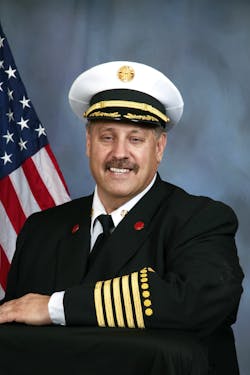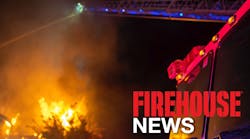I wish someone would do a study to see if a paramedic with a bachelor’s degree can intubate better than a paramedic without a bachelor’s degree. Do you think you can start an IV better if you have a degree in healthcare administration? Maybe a degree in chemistry would help you understand the molecular structure of the drugs you are pushing during a cardiac arrest.
I have a master’s degree in business and management, but I do not think it helps me intubate any better or start IVs faster, and if I had a degree in chemistry, I wouldn’t care about the chemical bonding of epinephrine when administering it to someone in ventricular fibrillation. I just want it to work. For the record, I do feel that it is important for people to pursue and obtain a minimum of an associate degree—I just don’t think it should be a requirement to be a licensed paramedic.
There are some in our profession who tell you that it is imperative that paramedics have degrees. Most of their rationale has nothing to do with clinical outcomes, though. Some of their logic is based on economics. They argue that if you require degrees, there will be fewer paramedics, and through the concept of supply and demand, fewer paramedics means higher pay.
Unfortunately, this will have a terrible outcome on the fire service, especially the volunteer fire service where it is already difficult to recruit and retain members. Fewer paramedics means that fewer patients will receive critical and early medical intervention when needed. This will impact patient outcomes in rural areas where transport times can sometimes be an hour or greater. Fewer paramedics in rural areas means waiting for a helicopter or just providing basic life support during the transport. Further, adding another layer of requirements on paramedics who volunteer for a fire department will mean fewer of them will be able to attain a paramedic certification or will be willing to make the effort.
Another argument used by the pro-degree people is that a few other countries require paramedics to have a degree so the United States should do so, too. But what about all the other countries that do not require their paramedics to have a degree? Just because a few countries require it doesn’t mean everyone should follow suit.
Efforts to model the United States after other countries for delivery of out-of-hospital care, especially in the realm of educational requirements, is ill-conceived. The socioeconomic and healthcare models of other countries are vastly different than those found in the United States. The concept of the paramedic started in the United States and remains the gold standard for advanced life support care.
Pro-degree people contend that the field of paramedicine has become multifaceted and intricate; therefore, any paramedics who practice in the future will need skill sets that not only give the background of the technical skills, but also the ability to communicate well in written and verbal format with fellow healthcare professionals. I find this interesting because it seems that during my time as a paramedic, it has become less complex to be a paramedic, as many of the skill sets that only I could do as a paramedic years ago have now shifted down to the EMT level. When I first became a paramedic, EMTs could not start an IV, defibrillate or give certain drugs. Now they are common EMT skills.
I certainly encourage every paramedic to go out and get a degree. Obtaining my master’s opened doors to me that I know I would not have obtained with just a high school education. It also broadened my ability to look at a problem and research solutions. Paramedics need go as far as they can in their post-high school education, especially if they aspire to move up the ranks into a management role. But mandating a degree in order to become a paramedic is short-sighted and obtuse thinking. It will only hurt patient outcomes and have a devastating effect on America’s fire service.






